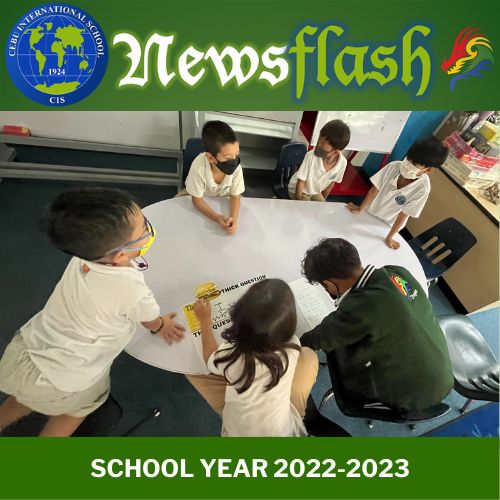
Principal’s Corner
by Mr. Andrew Powell, EY-12 Principal
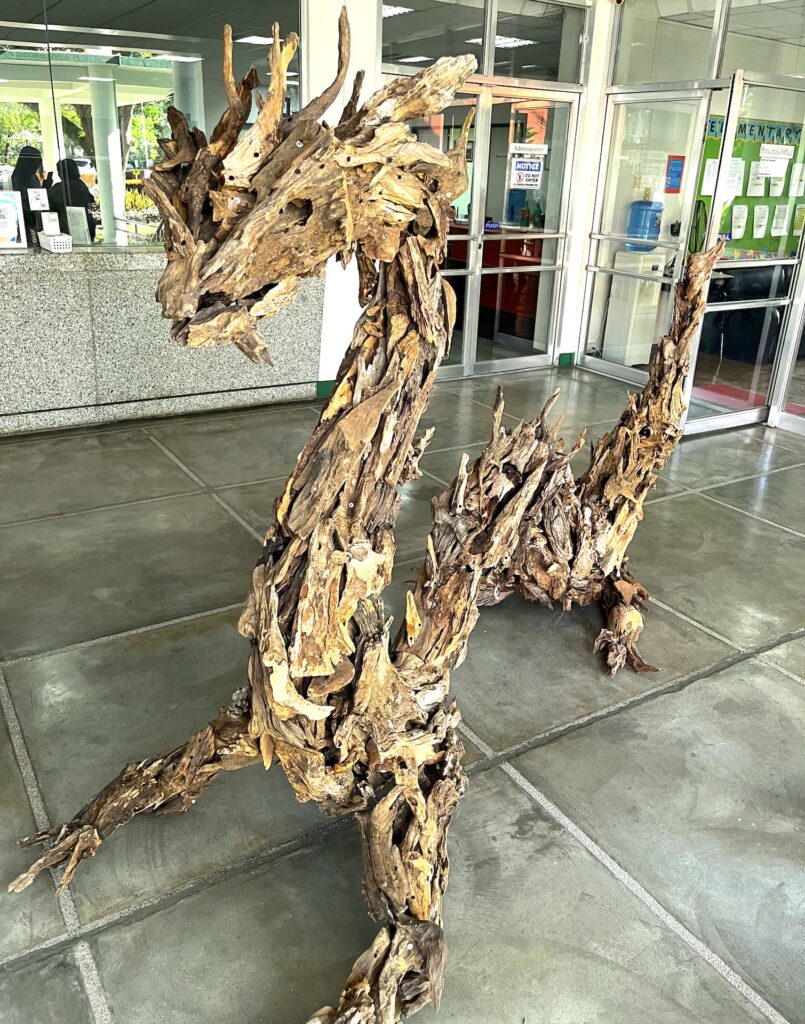 This week the campus has been especially busy as our Grade 5 students prepare for their culminating PYP Exhibition, while Grade 6-11 students engage in a variety of activities on and off campus as part of Week Without Walls. The progressive nature of the education provided to these groups of students is considerably different from that experienced by other students at schools in the Philippines. This approach places students at the center of the learning experience while offering them a safe and supportive environment that prepares them for life beyond the classroom.
This week the campus has been especially busy as our Grade 5 students prepare for their culminating PYP Exhibition, while Grade 6-11 students engage in a variety of activities on and off campus as part of Week Without Walls. The progressive nature of the education provided to these groups of students is considerably different from that experienced by other students at schools in the Philippines. This approach places students at the center of the learning experience while offering them a safe and supportive environment that prepares them for life beyond the classroom.
The practical nature of many of the Week Without Walls activities have been purposefully planned. Our students have engaged with the wider community through a series of service-learning opportunities off-campus. They have also enjoyed working with a racing car mechanic to get a better understanding of how cars work, participated in First Aid sessions to ensure that they can respond to critical emergencies, engaged in self-defense c classes, and worked together on various campus beautification projects, including the development of a garden. Jewelry-making and watercolor painting classes were also provided as optional activities while a remarkable CIS dragon was sculpted from wood and stands proudly in the lobby of our building.
The Grade 5 PYP Exhibition (PYPx), while showcasing individual explorations into various real-world problems, was also an exciting opportunity for students to share how they have grown in their knowledge and understanding. Resilience has proven to be a quality that is vital to thriving in an ever-changing world and this has been on display as students have engaged in problem-solving-based learning, which has challenged them to explore and take risks in a positive and constructive manner. Listening to students proudly speak about their explorations into topics and connecting them to Sustainable Development Goals was a powerful experience for many community members.
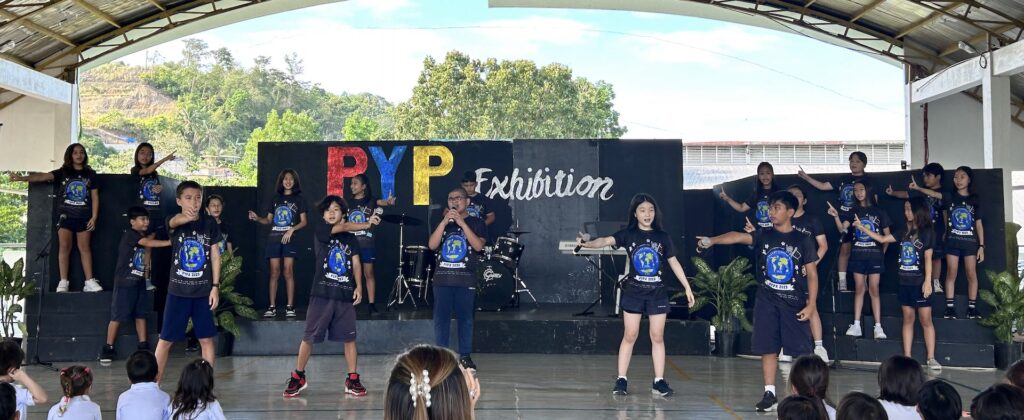
Creativity and innovation sets successful entrepreneurs apart from their peers and we know that through the activities that we offer, our students are well-placed to embrace this mindset. Learning extends beyond simple rote memorization and test-taking. In the real world, when faced with challenges it is not a matter of providing the right answer, but rather a matter of assessing a situation and thinking creatively to consider a range of possible answers. We strive to encourage our students to embrace their imaginations and skill sets so that they may experiment and innovate.
As a school, we believe that we are uniquely positioned to address the challenges of educating children in an ever-changing world. As such, we focus on the needs of our students in relation to life beyond the classroom. To respond to these changing and challenging times our progressive approach to education creates an environment that is filled with learning opportunities, and ignites passion and innovation while fostering meaningful relationships and the ability to solve practical problems and challenges.
Upcoming events of note
- April 27-May 19: IBDP Exams
- May 1: Labor Day (Public Holiday)
- May 5, 1-3 pm: CIS Open Day (Contact Admissions for info)
- May 8 – 12: Arts Week
- May 9, 7:45 am: PTA planning meeting (save the date – more details to come next week!)
- May 19: School holiday
- June 2: Graduation Day (*Note adjusted date from previous calendar)
- June 8: Last day of school & Moving up ceremonies (half day)
Please refer to the CIS Event Calendar for the complete calendar of school events.
Elementary: Media Literacy
Mary Jean Cordova – Media Literacy Teacher
In Media Literacy class, students have the opportunity to expand their learning, which helps them develop a deeper understanding of concepts. They were able to engage in activities aligned with their unit of inquiry, allowing them to apply the knowledge and skills they’ve learned in class.
As we wrapped up the recent unit under the transdisciplinary unit, Where We Are in Place and Time, students in Kinder and Grade 1 were able to recognize how our choices today affect and influence our future as they looked into the problems of transportation. They were able to acknowledge the importance of having sustainable transportation. Additionally, the students also explored different forms of transportation. They learned about their impact on the environment, prompting them to think critically about how they can contribute to a more sustainable future.
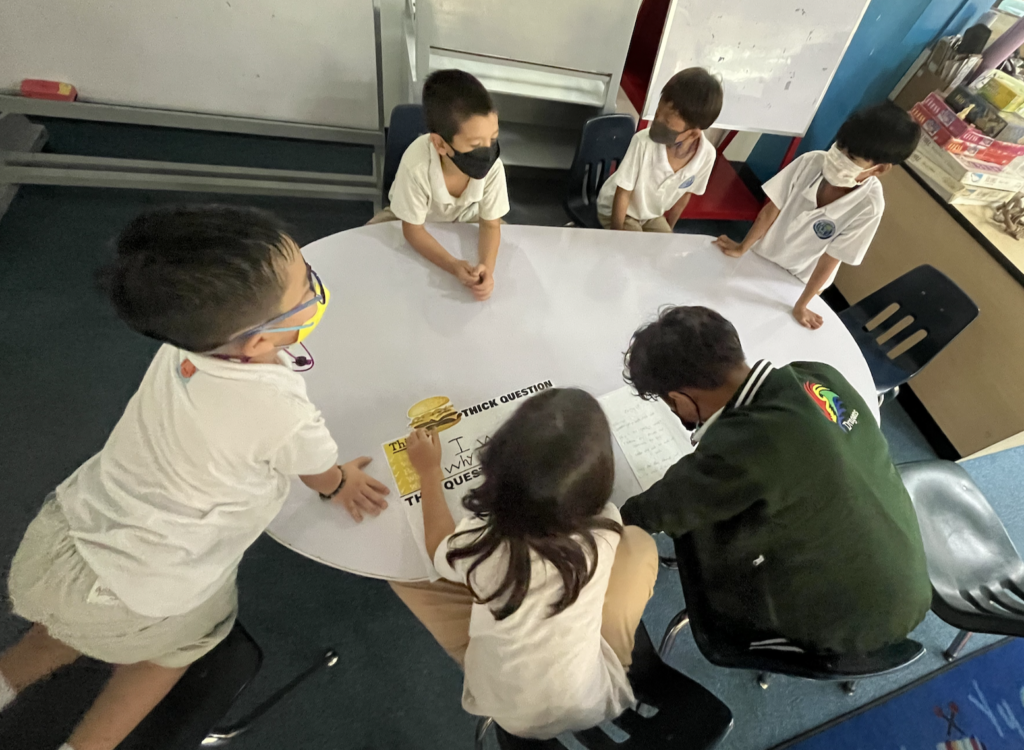
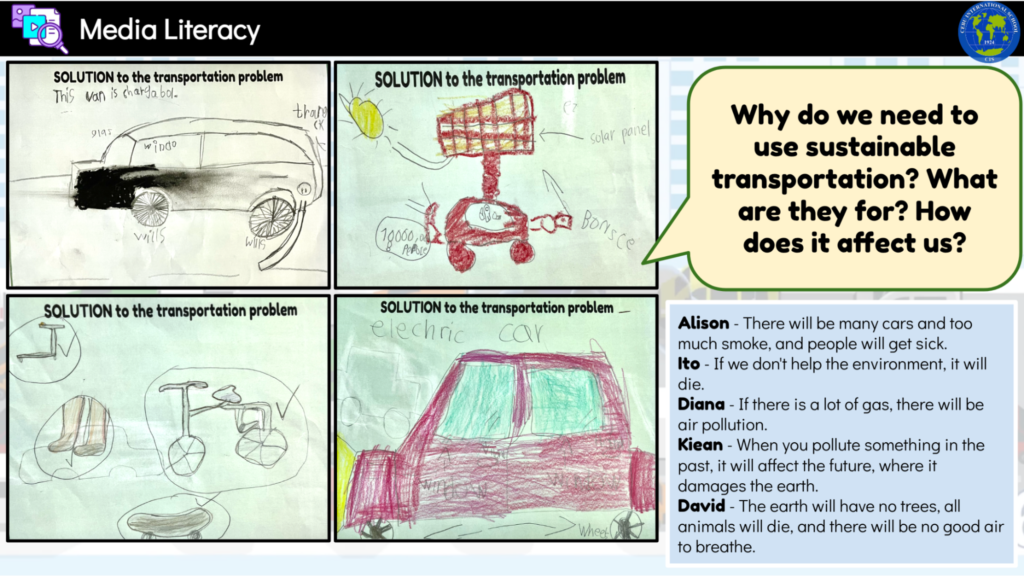
Students in Grades 2 to 4 did a novel study and looked into the adversities and challenges that the characters encountered throughout the story. They were able to develop their empathy and perspective-taking abilities as they put themselves in the characters’ shoes and considered the challenges they faced. They also explored the literary elements such as plot and characterization that provide them a greater appreciation for the art of storytelling and how authors use language to convey meaning and emotion.
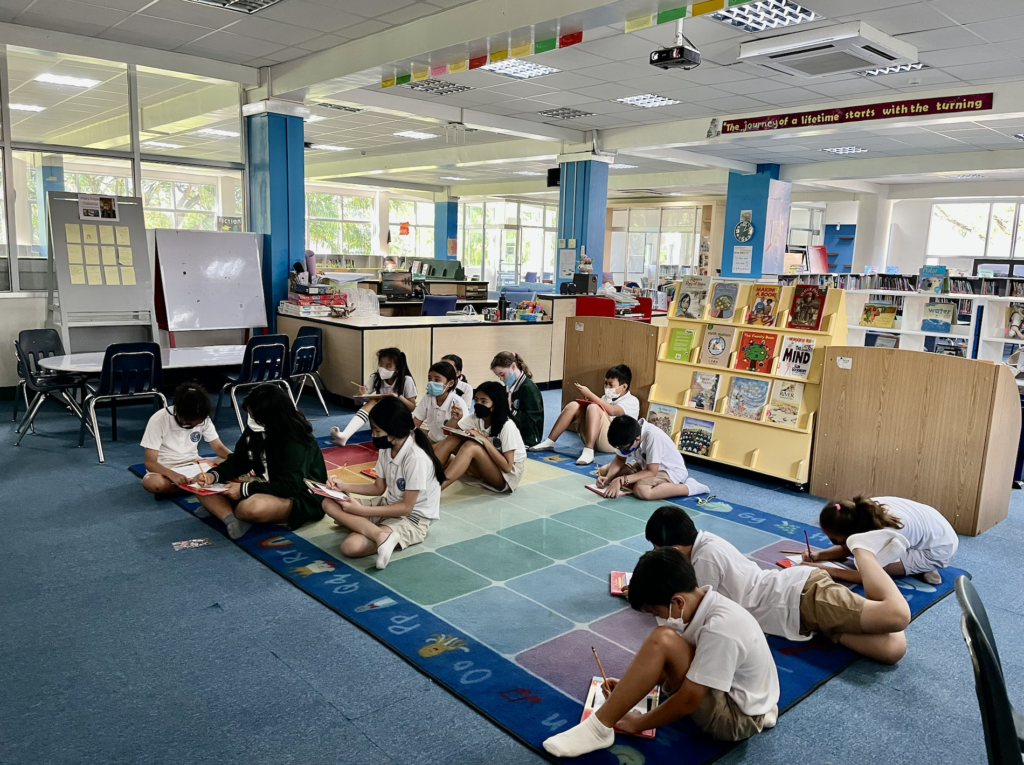
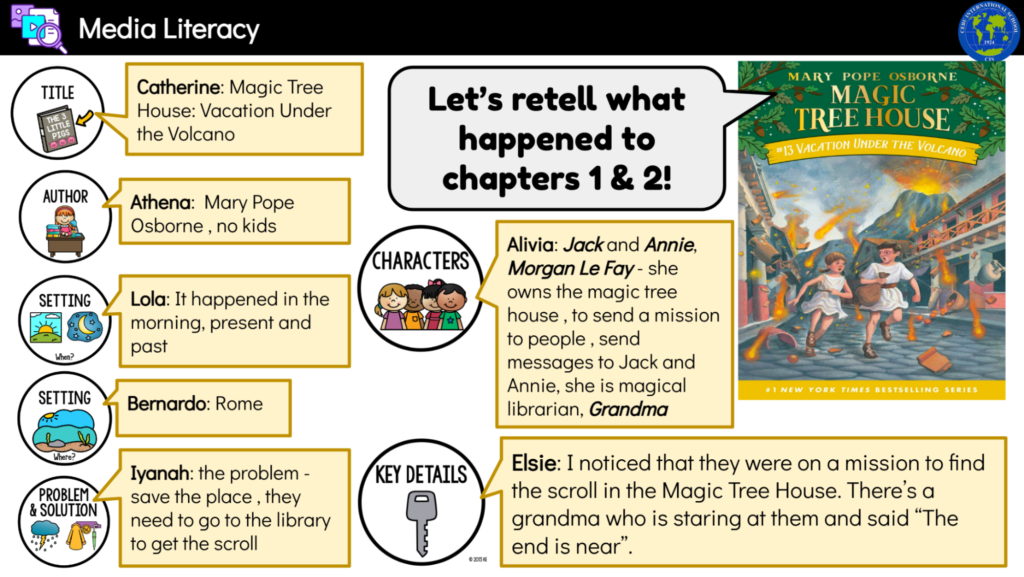
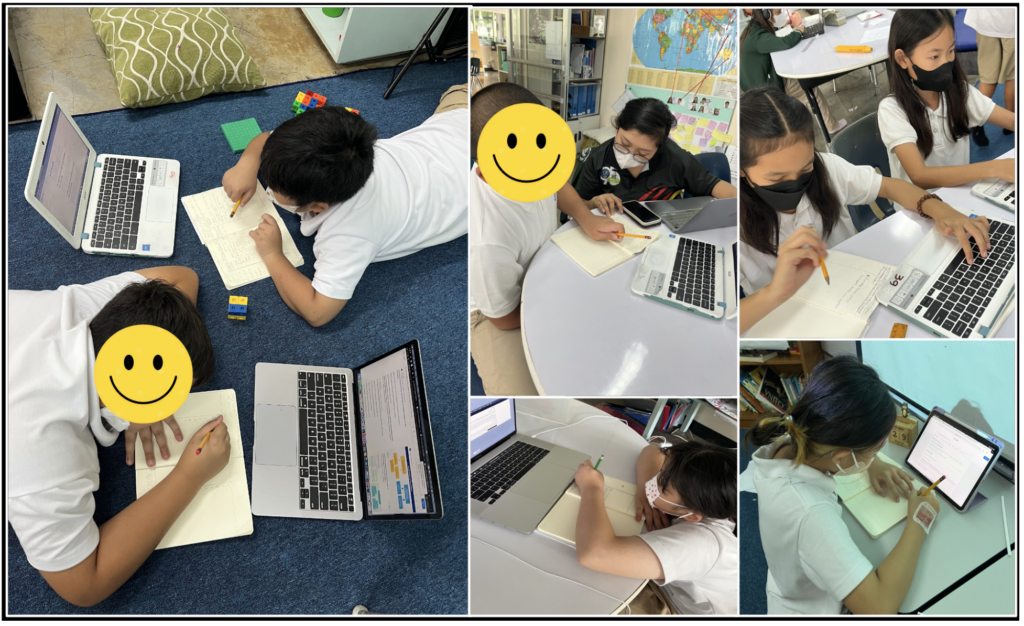
As the Grade 5 students are wrapping up their PYP Exhibition, in this unit, they were able to apply the skills that we’ve learned from the previous units. They were able to practice their research and thinking skills as they evaluated the sources they found to support their inquiry. This unit provided the Grade 5 students an excellent opportunity to integrate their learning and apply their skills in real-life contexts.
Spanish Class
by Mr. Antonio Melgar, MYP/DP Spanish Teacher
 Grades 8 and 9 really like to play, so for Spanish class, they created diverse board games to express their learning, realizations, and discoveries, according to their level of readiness, on the topic of the 3 Rs: recycle, reuse, repurpose. Here are some of the students’ comments in Spanish about the nature of these activities.
Grades 8 and 9 really like to play, so for Spanish class, they created diverse board games to express their learning, realizations, and discoveries, according to their level of readiness, on the topic of the 3 Rs: recycle, reuse, repurpose. Here are some of the students’ comments in Spanish about the nature of these activities.
- Pienso que los juegos son muy divertidos y tienen muchos información. Cuando hacer mi juego con mi compañeros, queremos un juego que agradable pero tienen informacion sabes la tema de polución. – N.V.
- Hemos creado el juego por hablar y decir nuestras opiniones e ideas- me encantan las miniaturas, y por eso, sugerí a mis compañeros. Después, hemos mejorado el tema básico y hemos completado el juego. Me gustan mucho los juegos de la clase, creo que es muy divertido y los temas de reciclar, reducir y reutilizar son muy aparentes. – YC
- Creo que crear los juegos es muy divertido. Aprendí muchas palabras y gramática nuevas. Sé más sobre la planeta y como ayudar al planeta. – R.B.
Grade 11: Spanish Language B
This quarter students from Grade 11 Spanish B, are discussing the positive and negative aspects of globalization, and how this aspect impacts on each of our lives at diverse levels and degree. The students created essential open-ended questions to reflect on universal language and currency, our personal impact on pollution, capitalism versus indigenous communities, how media and entertainment changes our perspective and how important moral values are in a capitalist society.
Below are some of the questions that students created questions and this coming week we will attempt to try to answer them. They are proud to announce that their CAS collaboration with Museo de Cadiz in Spain is almost complete, so watch out for our next posting on how their contribution will looks like on the MdC website
Students created questions
- ¿Cómo afecta la globalización a la creación de criptomonedas?
- ¿Cómo impactan las guerras a la globalización?
- ¿Cuál es el punto de la globalización?
- ¿Quién tiene el poder en el sistema capitalista?
- ¿Cuál sería el dinero universal? ¿por qué?
- ¿Cómo la globalización ha afectado nuestros sistemas de educación?
- ¿Individualmente, qué impacto tenemos sobre la globalización y su desarrollo?
- ¿Es posible globalizar más o estamos en un punto de no retorno?¿Por qué?
- ¿Por qué el capitalismo es muy popular en el mundo contemporáneo?
- ¿Podemos volver a un estilo de vida similar a como era antes de la globalización?¿por qué?
- ¿Qué pasará en el futuro a causa directa de la globalización?
- ¿Cómo afecta el capitalismo a las comunidades indígenas?
- ¿Cuál es el problema con la idea de un lenguaje universal?
- ¿Qué implicaciones políticas conlleva la globalización?
- ¿Hay un problema de globalización?¿por qué?
- ¿Hay un espacio para la tradición en nuestra cultura internacional? ¿por qué?
- ¿Hay grandes problemas de capitalismo en conexión con la globalización? ¿y por qué?
- ¿Ha ido muy lejos la globalización?¿por qué?
- ¿Puede ver los resultados de la globalización en las diferencias de las generaciones? ¿Y cuáles pueden ser esas diferencias?
- ¿Cuál es la importancia de los valores morales desde el punto de vista del capitalismo?
WWW Reflection
by Gabby, Grade 10
WWW has been a very productive week. It was full of fun and new experiences. It was really enlightening. I learned a lot of new things, especially during the field trip. The Day trip was one of a kind. Through the trip, we were able to connect with and better grasp the experiences of local public school students and be more in touch with the reality of it all. I was able to experience and see the inequality of life. Through this experience I was able to think and reflect about my life, the environment I am used to, as well as how lucky I am to be living a stable life. Despite our differences, for instance, language, as a diverse community, we were able to get along with them and fully immerse ourselves in the process of both teaching and learning. It was a pleasure to see the children having fun and enjoying our presence. After the day trip, we spent the rest of the week getting involved in beautification and art projects such as making artificial coral reefs and jewelry making, learning survival skills such as basic first aid and leaving no trace on the environment. Through these activities, we were able to develop awareness of how we can make positive impacts on the environment and people around us. Overall, WWW was a joyful and meaningful learning experience.
College/Careers Counselor Corner
by Ms. Jenny Basa, College/Careers Counselor Corner
Study in Japan
Two weeks ago, Mr. Freddy Mason from the Nagoya University of Commerce & Business shared some interesting data about studying in Japan. These slides were extracted from his original presentation with permission to publish.
Below is the average tuition cost per year depending on the type of university. “Scholarships” may range from a one-off tuition discount of 10% up to 100% with room and board.
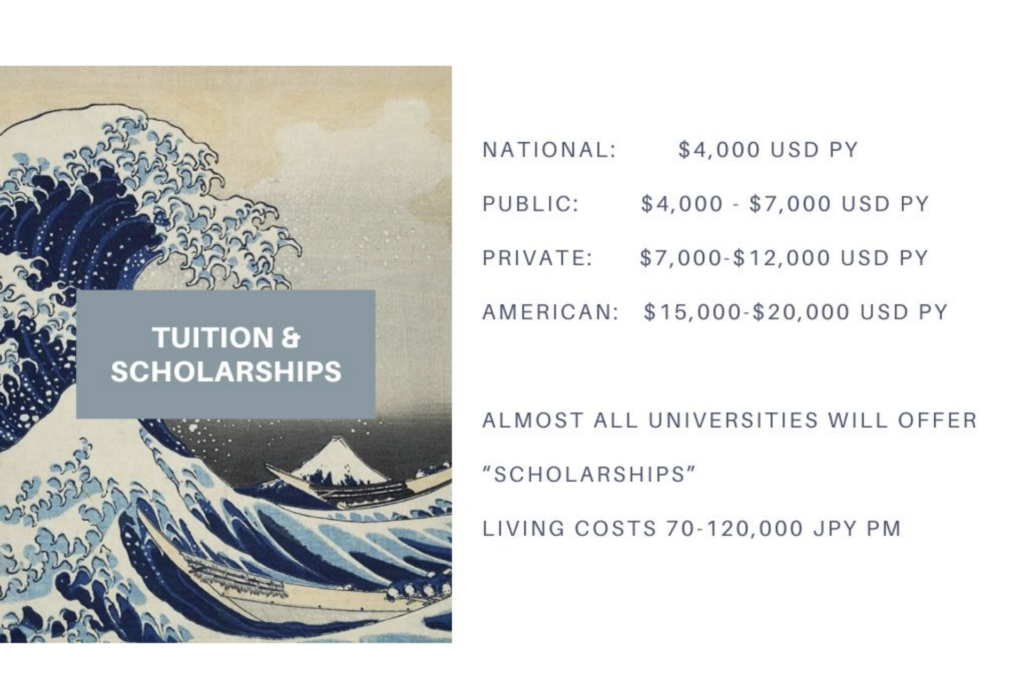
The figure below breaks down the cost distribution for a student to live and study in Japan and a cost comparison among different cities/prefectures.
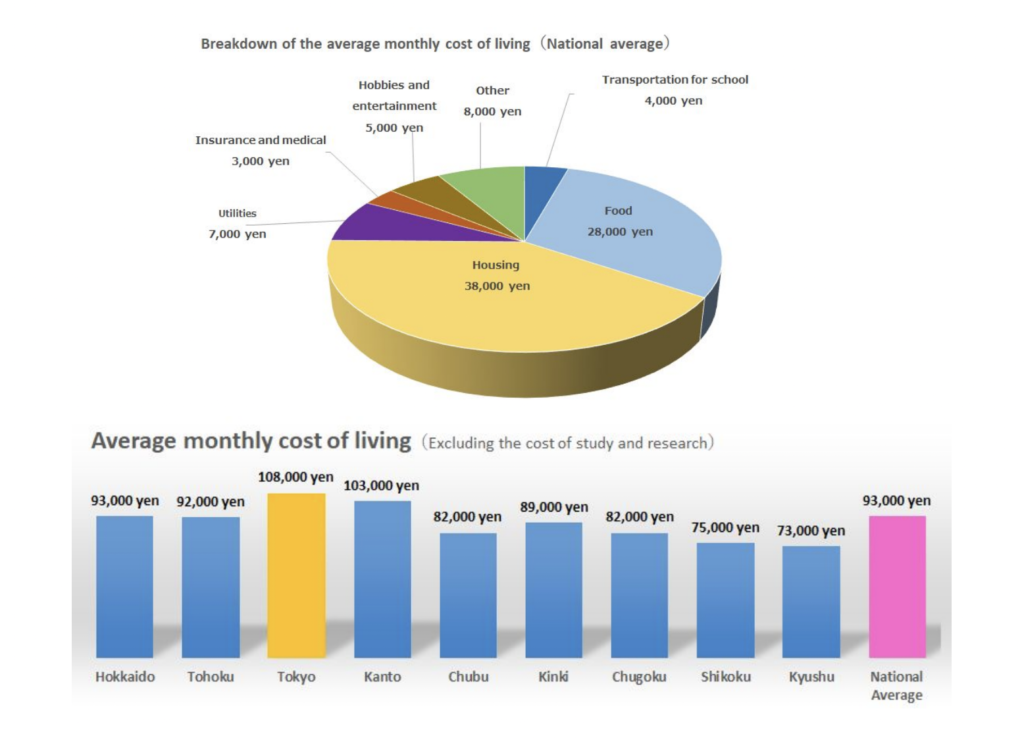
Japanese University Consortium
To learn more about universities in Japan, visit the Japanese University Consortium website. The figure below shows the logos of all universities.
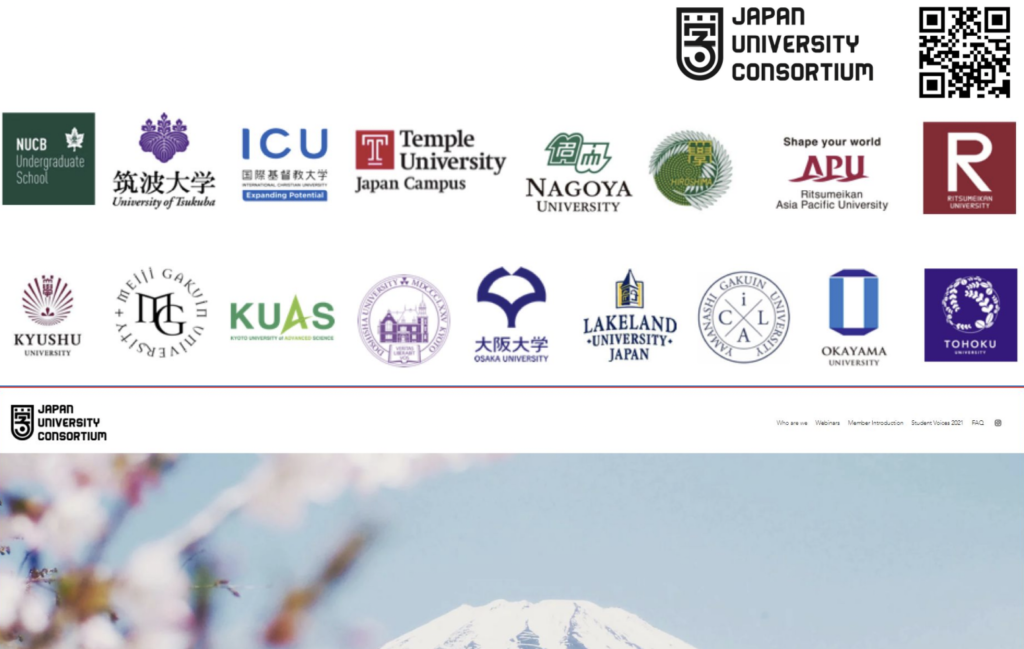
SAT UPDATE for 2022-2023
| SAT Test Date | Deadline for Registration, Changes and Regular Cancellation |
| June 3, 2023 (Digital) | May 19, 2023 |
Test dates labeled Digital means that students will bring a device to the test center and take the exam using their device. The College Board may provide devices for test-takers who do not have access to a device. All test-takers for Digital SATs are still required to report physically to the test center to take the test.
To register for the SAT, you may click on this link. If you need assistance or have any questions, please feel free to email Ms. Jenny Basa at jbasa@cis.edu.ph.



